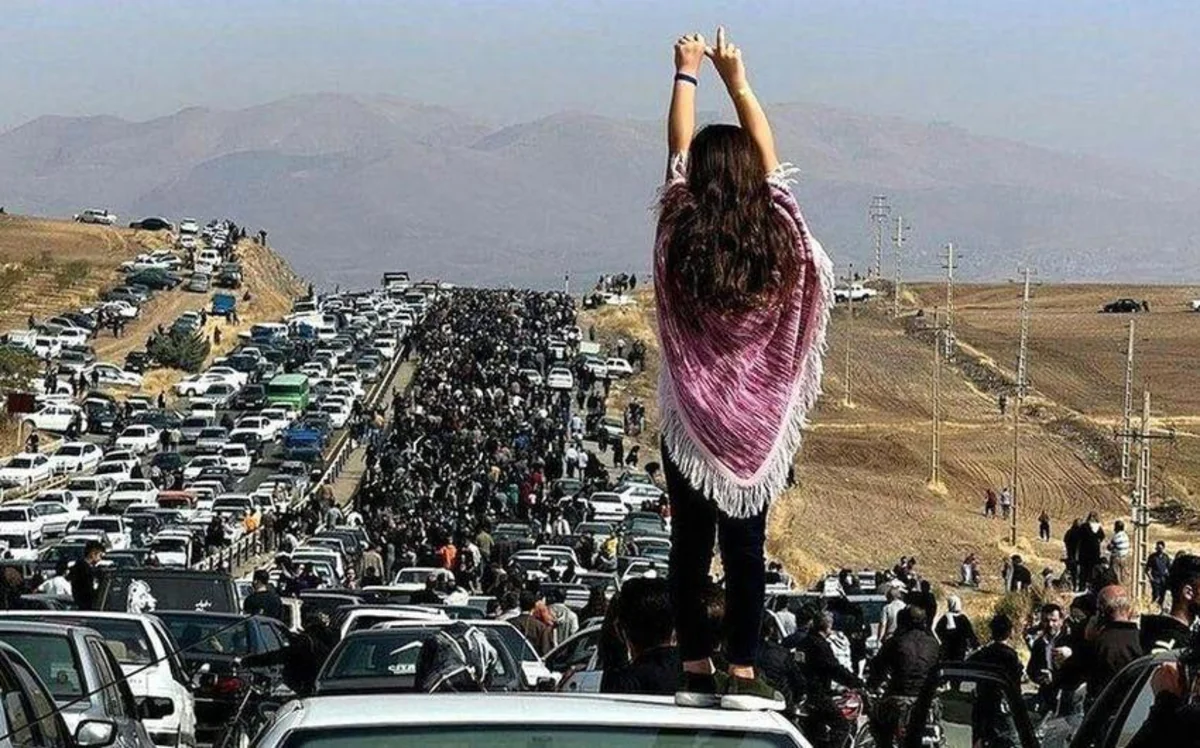ISW: Protests creating fractures among senior regime officials within Iranian security establishment
- 19 November, 2022
- 06:51

The ongoing, anti-regime protests are likely creating fractures among senior regime officials within the Iranian security establishment, said the Institute for the Study of War (ISW), Report informs.
Institute noted that regime officials and regime-affiliated actors alluded to disagreements over protest suppression tactics within the Iranian security apparatus on November 18, however:
"A Raisi administration official stated that the regime could expeditiously end unrest as soon as "the relevant authorities were willing" on November 18, suggesting divisions within the regime about how much violence security personnel should use to quell protesters. A regime-affiliated cleric in a Chaharmahal and Bakhtiari town similarly stated that officials who lacked the courage to do 'great things' should be removed from power and replaced by others more capable of implementing Supreme Leader Ayatollah Ali Khamenei's vision. Hardline editor Hossein Shariatmadari, who is reportedly a close confidante of the Supreme Leader, additionally advocated for greater use of force against protesters on November 18."
It also said that divisions within the SNSC—particularly Shamkhani's resignation or ousting-would be especially significant given the importance of the council within the regime:

"The SNSC is the most senior national security and foreign policy decision-making body in the Iranian regime, and Shamkhani has served as the Supreme Leader's personal representative within the council since 2013. Shamkhani has additionally held several senior security posts within the regime and is an extended member of the IRGC Command Network—the informal human network forged by service together in the Iran-Iraq War that has controlled the IRGC and, increasingly, joint IRGC-Artesh organizations-for decades. Shamkhani is a trusted advisor of the supreme leader, and calls for Shamkhani's resignation may be an indirect criticism of the Supreme Leader's protest suppression response. Criticisms of Shamkhani—and holding him responsible for ongoing unrest—could alternatively suggest that Khamenei is playing a less active role in executing senior policy decisions than he typically would."
According to analysts, Shamkhani is a most unlikely public scapegoat:
"He does not have a prominent public persona and is most important as one of the most inside of insiders. He may have considerable influence over the course of SNSC discussions that determine the shape of the regime's response to protests, especially if the supreme leader is inaccessible or unable, mentally or physically, to fulfill his responsibilities. It is noteworthy that Khamenei has not appeared in public recently and has reportedly participated in other events without posting any current photos or videos. The shadow of a possibly imminent supreme leader succession has covered the entire protest period and could be manifesting as a challenge to one of Khamenei's closest and most trusted advisors and mouthpieces."
Researchers analyzing the Iranian press emphasized that mass actions were recorded in a number of residential areas of South Azerbaijan. Analysts pointed out that there were mass protests in the cities of Tabriz, Khoy, and Ardabil, where the Azerbaijani Turks live compactly, and at the same time there was a confrontation with the power structures.

Recent Turkish threats to also conduct military operations against armed Kurdish groups in Iraq and Syria increase the likelihood of an IRGC ground campaign in Iraqi Kurdistan and present Iraqi Kurdistan with the danger of simultaneous invasion from north and east:
"The potential renewal of Turkiye's campaign against armed Kurdish groups in northern Syria may, however, impede close cooperation between the IRGC and the Turkish military. Turkish rhetoric has emphasized that the November 13 terror attack is connected to alleged terror cells in the Manbij area of northeastern Aleppo Province, Syria. Iran has historically prioritized protecting the Shia-majority towns of Nubl and Zahraa located approximately 75 kilometers from Manbij; Hezbollahi militants maintain a significant military presence around the villages. A potential Turkish military operation aimed at Manbij may also include military activity nearby the Shia-majority villages, which Lebanese Hezbollah militants would likely fiercely resist. A direct military confrontation in northern Syria consequently may obstruct military cooperation between Iran and Turkiye in Iraqi Kurdistan."
